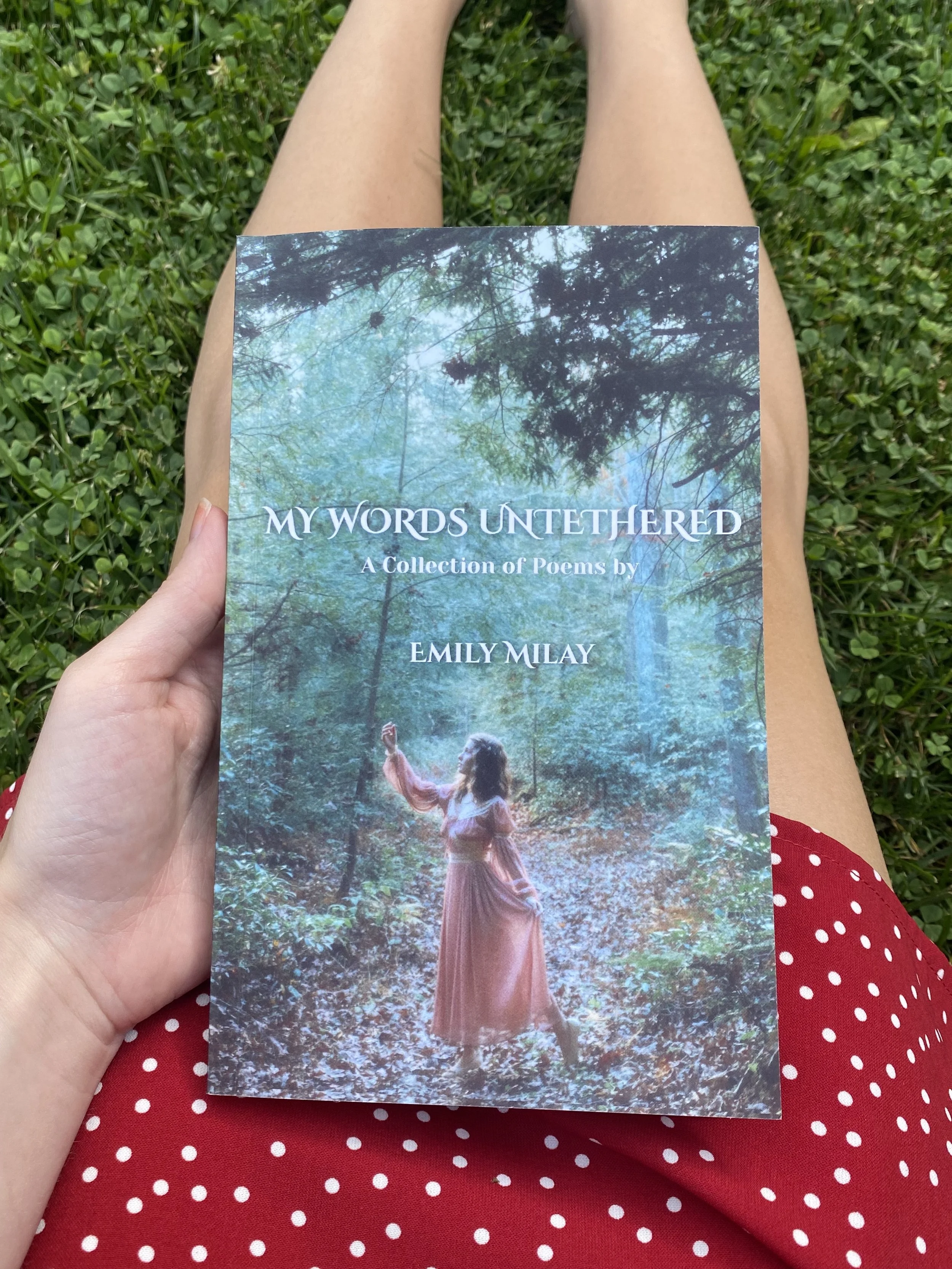About
I often say that My Words Untethered was conceptualized four years ago, but sown as a seed two decades ago.
I must have been four or five years old when I sat in my sunlit bedroom, reciting the Emily Dickinson poem—“Bee! I’m expecting you!”—that my mother had carefully scrawled across its walls. At the time, I didn’t know that Dickinson was one of the two namesakes—the other being Edna St. Vincent Millay—I’d been given, but I felt a special camaraderie with her, nonetheless. I thrilled at the jaunty cadence of her poetry, weighing each of her well-chosen words in my mouth as I recited “Bee! I’m expecting you!” over and over again like a mantra.
I’d unconsciously gained an education sitting there, reciting that poem until it sang in my head. Looking back, I see how poetry captivated me from the beginning, slowly converting me from a reader to a writer, and later, from a writer to an author. One poem written a century and a half before my birth was all it took to ignite a passion that would persist throughout my life. By the time I was ten, I already knew I wanted to be an author one day.
However, it wasn’t until 2024 that my dream to publish began to feel attainable. I had reached the pinnacle of artistic output, churning out a poem a day during some of the most creatively charged months of my life. There was a cohesiveness, refinement, and voice to my poetry that hadn’t been there in years past, when I was still honing the craft and searching for my unique artistic edge. Finally confident that my work was worthy of publication, I began compiling my poems into a collection and promoting the upcoming release of My Words Untethered on social media, where I built a small, like-minded community of poets and poetry lovers.
This wasn’t a vanity publication. I believed both then and now that My Words Untethered offers something unique to the poetic landscape. It is a collection that adds something old rather than new to the genre by preserving the tradition of confessional lyric poetry popularized by writers like Sylvia Plath and Robert Lowell. While not yet extinct, traditional expressions of confessional lyric poetry are outmoded in this current literary era, as many consumers are gravitating toward short, easily digestible prose that places less of an emphasis on rhyme, meter, and figurative language. However, there is still a small but vocal sect of readers who feel unrepresented by this style and long for classically influenced collections—collections that are currently absent from the genre.
I released my book intending to supply this lack in some small way. My greatest hope is that those who read My Words Untethered will feel inspired to keep the tradition of classic poetry—more specifically, confessional lyric poetry—alive through their own words.
In My Words Untethered, you will find elaboration over simplification, rhythm over stasis, and metaphor over realism. You will trudge through scenes that convey the imperfect essence of humanity through evocative metaphors and sharp, controlled language. You will watch the moon skitter over the sun, hear the ominous jangle of silver in a traitor’s pocket, and watch in horror as hordes of estate sale goers seize the last remnants of someone’s life. You will walk through worlds both dark and light, feeling the full weight of the human experience and, hopefully, seeing something of yourself in each poem.
In the white silence of my childhood bedroom, inspiration leaked from the words on my wall and left an indelible impression on me. The tools I needed to realize a future dream were born then, and now, finally, that dream has come true. I hope you will consider adding My Words Untethered to your library—maybe it will inspire the same dream in you.
the author
Emily Milay is an American writer who specializes in confessional lyric poetry. She is the author of My Words Untethered: A Collection of Poems and a critical analysis of F. Scott Fitzgerald's The Great Gatsby. Emily holds a degree in English and Writing, channeling her passion for research and analysis into her work as a freelance writer. When she doesn’t have a pen in her hand, you can find her reading, gardening, or taking a walk in nature.


